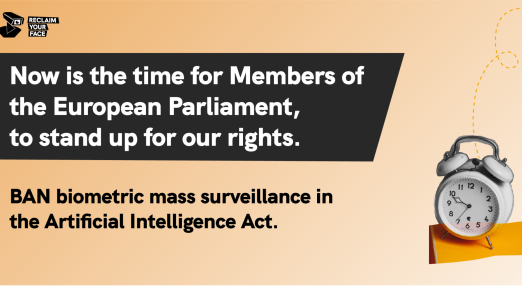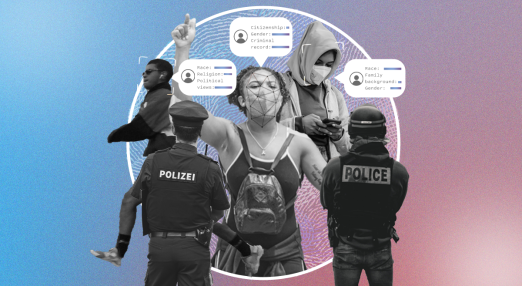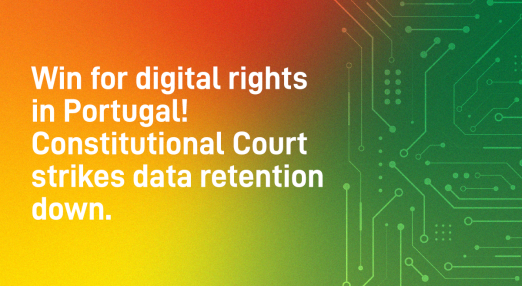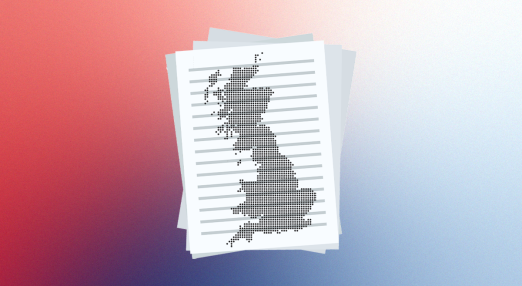Private and secure communications attacked by European Commission’s latest proposal
On 11 May, the European Commission put forward a proposal for a ‘Regulation laying down rules to prevent and combat child sexual abuse’ to replace the interim legislation that EDRi fought against last year. In our immediate reaction, EDRi warned that the new proposal creates major risks for the privacy, security and integrity of private communications, not just in the EU, but globally. Here, we unpack a bit more about the legislative proposal, and why we are so concerned.
Filter resources
-

Private and secure communications attacked by European Commission’s latest proposal
On 11 May, the European Commission put forward a proposal for a ‘Regulation laying down rules to prevent and combat child sexual abuse’ to replace the interim legislation that EDRi fought against last year. In our immediate reaction, EDRi warned that the new proposal creates major risks for the privacy, security and integrity of private communications, not just in the EU, but globally. Here, we unpack a bit more about the legislative proposal, and why we are so concerned.
Read more
-

European Commission’s online CSAM proposal fails to find right solutions to tackle child sexual abuse
Today, 11 May, is a worrying day for every person in the EU who wants to send a message privately without exposing their personal information, like chats and photos, to private companies and governments. The European Commission has adopted its “Regulation laying down rules to prevent and combat child sexual abuse” material online, including measures which put the vital integrity of secure communications at risk.
Read more
-

Will the European Parliament stand up for our rights by prohibiting biometric mass surveillance in the AI Act?
On 10 May, EDRi and 52 organisations wrote to the Members of the European Parliament to ask them to ban the remote use of these technologies in publicly accessible spaces to protect all the places where we exercise our rights and come together as communities from becoming sites of mass surveillance where we are all treated as suspects.
Read more
-

Regulating Migration Tech: How the EU’s AI Act can better protect people on the move
As the European Union amends the Artificial Intelligence Act (AI Act) exploring the impact of AI systems on marginalised communities is vital. AI systems are increasingly developed, tested and deployed to judge and control migrants and people on the move in harmful ways. How can the AI Act prevent this?
Read more
-

Europol’s ever-increasing mandate: European Parliament failed to stand up for fundamental rights
Today, 4 May, Members of the European Parliament (MEPs) approved the revision of Europol’s mandate and the Schengen Information System. This supports a massive, unchecked expansion of Europol’s powers, posing a threat to people’s rights through over-policing, mass surveillance and discrimination.
Read more
-

EDRi-gram, 4 May 2022
In this edition of the EDRi-gram, we urge the European Parliament to vote down the expansion of Europol's powers to prevent the enabling of mass surveillance. We also explore what could go wrong when a billionaire decides to buy one of the largest social media platforms. Join us in celebrating the success of EDRi member Defesa dos Direitos Digitais who got the Portuguese Constitutional Court to declare the unconstitutionality of the Portuguese data retention law.
Read more
-

Elon Musk buying Twitter. What could possibly go wrong?
A new chapter of the surveillance capitalism saga happened just three days after the EU members adopted the final agreement on the Digital Services Act (DSA). The board of directors of Twitter accepted Elon Musk’s offer to buy the company for USD 44 billion. The deal is not closed yet, and now the ball is in Twitter’s shareholders to accept or reject the offer. This news has grabbed the media's attention worldwide and opened public discussions on how this would affect not only the features of Twitter but also freedom of speech in the digital sphere.
Read more
-

“E-evidence” negotiations: European Parliament must stand its grounds
The European Parliament and the Council have tremendous difficulties to agree on the issue of cross-border access to data by national law enforcement authorities. While the Parliament is trying to maintain as many fundamental rights safeguards as possible in the so-called “e-evidence” Regulation, the Council is stubbornly sticking to its position. If the Council’s vision overrides the Parliament, the legislation would seriously threaten free speech, privacy rights and the right to a fair trial. A coalition of digital rights, lawyers, journalists, media organisations and internet service providers associations are calling on the Council to show a greater spirit of cooperation and urge the Parliament to not excessively deviate from its original position.
Read more
-

Portugal: Constitutional Court strikes data retention down
On 19 April 2022, at the request of the Ombudsperson, the Portuguese Constitutional Court declared the unconstitutionality of the Portuguese data retention law.
Read more
-

Post-Brexit data protection laws are coming, and we should all be concerned about it
The UK Government are expected to reveal their Post-Brexit data protection bill on 10 May. They are proposing a framework that frames personal data in terms of economic assets and aims to "cut red tape" to promote their commercial use. These ideas draw considerable support among corporate lobbyists and large technology companies, which would no doubt leverage the "UK example" to advocate for weaker data protection standards in Europe. In turn, understanding and opposing these changes should not be seen as a domestic issue, but as a major threat for digital rights advocates across the globe.
Read more
-

Threat to the protection of personal data in Belgium: European civil society is concerned
EDRi, alongisde multiple civil society organisations, is the signatory of an open letter addressed to the Belgian Parliament, demanding better enforcement of the European data protection rules and guarantees of political independence of the Belgian Data Protection Authority.
Read more
-

When the political party votes for you: Can we have a fair election with surveillance political advertising?
A new regulation on online advertising was proposed last December to address political ads, which identifies in one definition, two techniques to deliver political ads: targeting and amplification.
Read more
